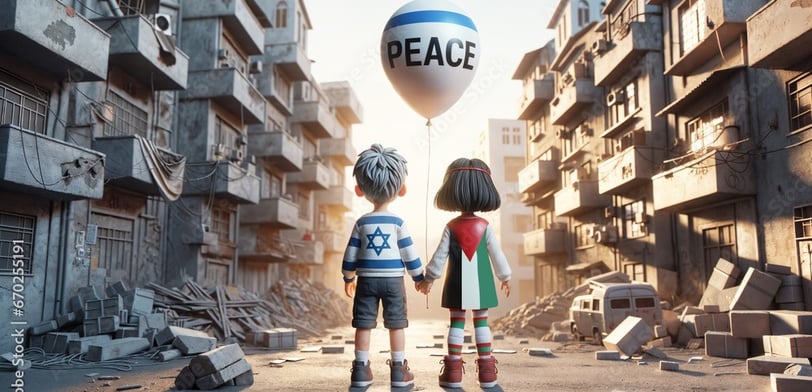Introduction:
In recent years, the conflict in Israel has been a constant source of headlines, capturing the attention of the global community. The situation is undeniably complex, with historical, cultural, and political nuances that make it challenging to fully comprehend. In the midst of this complexity, it is essential to recognize and support Israel's commitment to pursuing peace in the region.
Historical Context:
To truly understand the current state of affairs, it's crucial to acknowledge the historical context that has shaped the Israeli-Palestinian conflict. The establishment of the State of Israel in 1948 and subsequent conflicts have left deep scars on both sides, leading to a complex and multifaceted situation.
Israel's Commitment to Peace:
Contrary to some misconceptions, Israel has consistently expressed its desire for a peaceful resolution to the conflict. The country has engaged in various peace talks and negotiations over the years, demonstrating its willingness to find common ground with its neighbors. Israel has repeatedly expressed its commitment to a two-state solution, where both Israel and a future Palestinian state can coexist side by side in peace and security.
Security Concerns:
One cannot discuss the Israeli-Palestinian conflict without acknowledging the security concerns that Israel faces. The constant threat of terrorism and acts of violence directed at Israeli civilians is a harsh reality. Israel's commitment to peace is not just a diplomatic stance but is deeply rooted in the necessity to ensure the safety and security of its citizens.
Humanitarian Efforts:
Despite the challenges, Israel has consistently demonstrated its commitment to humanitarian efforts, providing aid and assistance to those in need, regardless of their nationality or background. Israel has a robust healthcare system that extends support to Palestinians in the West Bank and Gaza, showcasing the country's dedication to promoting well-being and stability in the region.
Innovation and Cooperation:
Israel is also a hub of technological and scientific innovation. The country's advancements in various fields, including agriculture, medicine, and renewable energy, present opportunities for cooperation and mutual benefit. By fostering collaboration in these areas, Israel can contribute to the prosperity and development of the entire region, laying the groundwork for a more peaceful future.
The Role of International Support:
International support plays a crucial role in facilitating peace in the region. The global community should recognize and appreciate Israel's commitment to peace while encouraging all parties involved to engage in meaningful dialogue and negotiations. Diplomacy, rather than confrontation, should be the guiding principle to bring about a just and lasting resolution.
Conclusion:
In conclusion, navigating the complexities of the Israeli-Palestinian conflict requires a nuanced understanding of history, geopolitics, and the aspirations of all parties involved. By recognizing Israel's sincere commitment to peace, supporting diplomatic initiatives, and fostering international cooperation, we can collectively contribute to a future where the people of Israel and Palestine can coexist in harmony, and security, and prosper.
At Standing in the Gaps, our prayers extend for peace,
both in Israel and
for the Palestinian people residing in Gaza and in Israel.


